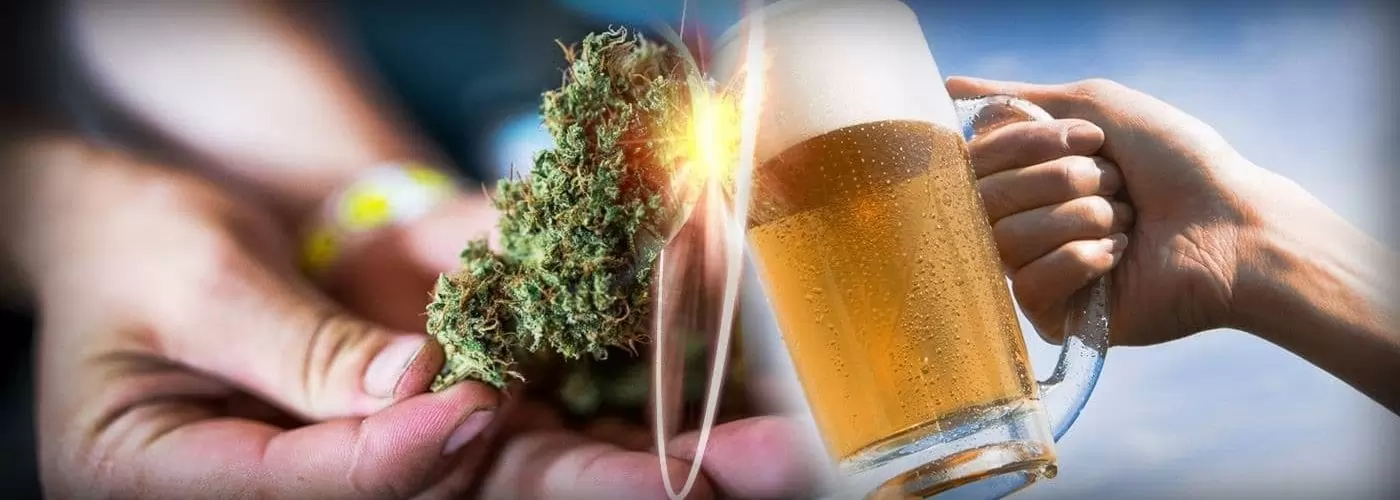World Cannabis – Robert Moore – Jan 20 2023
Cannabis, also known as marijuana, is a plant that has been used for medicinal and recreational purposes for centuries. In recent years, the conversation around cannabis has shifted as more states legalize its use and research continues to uncover its potential benefits. In comparison to alcohol, cannabis has been found to be a safer and more beneficial substance in a variety of ways.
- Cannabis does not cause fatal overdose: Unlike alcohol, which can be fatal in high doses, there have been no recorded deaths from cannabis overdose.
- Cannabis does not lead to liver damage: Alcohol consumption can lead to cirrhosis of the liver and other forms of liver damage. Cannabis does not have a similar effect on the liver.
- Cannabis does not increase risk of cancer: Studies have shown that heavy alcohol consumption can increase the risk of certain types of cancer, including liver, breast, and colon cancer. There is no evidence that cannabis consumption has a similar effect.
- Cannabis does not cause aggression or violence: While alcohol consumption is often associated with aggressive and violent behavior, cannabis has been found to have the opposite effect, promoting relaxation and calm.
- Cannabis can be used medicinally: While alcohol is not used medicinally, cannabis has been found to be effective in treating a variety of medical conditions, including chronic pain, anxiety, and PTSD.
- Cannabis can be used to combat addiction: Studies have shown that cannabis can be used to help individuals with alcohol and opioid addiction.
- Cannabis can improve cognitive function: While alcohol consumption can lead to cognitive impairment, cannabis has been found to improve cognitive function and creativity.
- Cannabis can improve cardiovascular health: While alcohol consumption can lead to cardiovascular disease, cannabis has been found to have a protective effect on the cardiovascular system.
- Cannabis is non-toxic: Unlike alcohol, which is a toxic substance, cannabis is non-toxic and safe for consumption.
- Cannabis can improve sleep: While alcohol can disrupt sleep, cannabis has been found to promote deeper and more restful sleep.
- Cannabis can improve appetite: While alcohol can suppress appetite, cannabis can stimulate it, making it useful for individuals with eating disorders or those undergoing chemotherapy.
- Cannabis does not cause blackouts: Unlike alcohol, which can cause blackouts and memory loss, cannabis does not have a similar effect on memory.
- Cannabis can improve athletic performance: While alcohol can impair physical performance, cannabis has been found to enhance it, making it useful for athletes and fitness enthusiasts.
- Cannabis can improve sexual function: While alcohol can impair sexual function, cannabis has been found to enhance it, making it useful for individuals with sexual dysfunction.
- Cannabis is non-addictive: Unlike alcohol, which can lead to physical dependence and addiction, cannabis is non-addictive and can be used responsibly.
- Cannabis can improve mental health: While alcohol can worsen mental health, cannabis has been found to improve it, making it useful for individuals with anxiety, depression, and PTSD.
- Cannabis can improve skin health: While alcohol can dehydrate and damage the skin, cannabis has been found to improve it, making it useful for individuals with acne and eczema.
- Cannabis can improve respiratory health: While alcohol can irritate and damage the respiratory system, cannabis has been found to improve it, making it useful for individuals with asthma and bronchitis.
- Cannabis can improve eye health: While alcohol can damage the eyes, cannabis has been found to improve eye health, making it useful for individuals with glaucoma and other eye conditions.
- Cannabis can improve gut health:
